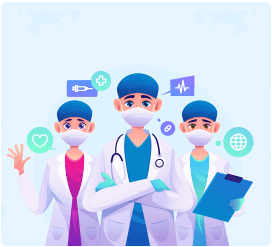-
Posted Date
Blog3
How to Safely Throw Away Medication: A Complete Guide to Responsible Disposal
Every home has a medicine cabinet, and over time, it can collect expired, unused, or half-finished medications. Many people don’t realize that throwing medication in the trash or flushing it down the toilet is unsafe. Improper disposal can harm the environment, contaminate water, and even pose risks if misused by others.
This guide will walk you through safe and responsible ways to throw away medication, ensuring the safety of your family, community, and the environment.
Why Safe Disposal of Medication Matters
-
Prevents misuse → Leftover painkillers, antibiotics, or psychiatric medicines can be dangerous if taken by someone for whom they weren’t prescribed.
-
Protects children & pets → Accidental ingestion of discarded pills can cause poisoning.
-
Environmental protection → Flushing medicines pollutes rivers, soil, and drinking water.
-
Fights antibiotic resistance → Improper disposal of antibiotics may contribute to resistant bacteria in the environment.
Step 1: Check for Local Take-Back Programs
The best way to dispose of unused medicines is through official take-back programs.
-
Pharmacies and hospitals often have drop-off bins.
-
Government programs: Many cities hold medicine return drives.
-
Authorized collection sites: Search online for “medicine take-back near me.”
These programs ensure your medication is destroyed by incineration or secure methods—keeping it out of landfills and water systems.
Step 2: Safe Disposal at Home (If No Take-Back Option)
If you don’t have access to a take-back program, you can safely dispose of medication at home by following these steps:
-
Remove personal details
-
Scratch out your name and prescription number on the label to protect your privacy.
-
-
Do not flush (except rare cases)
-
Most medicines should not be flushed. Only those on the FDA flush list (like certain strong opioids) should be flushed when no alternative exists.
-
-
Mix with undesirable substances
-
Take pills or liquids out of their original containers.
-
Mix with something unpleasant like coffee grounds, dirt, or cat litter.
-
-
Seal and throw away
-
Place the mixture in a sealed plastic bag or container.
-
Throw it in your household trash, away from children and pets.
-
Step 3: Special Types of Medication
-
Liquid medications → Seal tightly in their original bottles, then mix in a bag with cat litter before discarding.
-
Inhalers → Some inhalers can explode if punctured or burned; check with a pharmacy for proper disposal.
-
Patches (like pain relief or nicotine) → Fold them in half (sticky sides together) before disposal, so no medicine remains exposed.
-
Controlled substances (opioids, sedatives) → Always use a take-back program if possible to prevent abuse.
What NOT to Do with Old Medication
-
❌ Do not flush unless explicitly instructed (harms water supply).
-
❌ Do not burn in open fires or stoves (releases toxic fumes).
-
❌ Do not give to others even if they have similar symptoms.
-
❌ Do not keep expired medicines “just in case”—they may lose effectiveness or become harmful.
Alternative Safe Options
-
Return to your doctor’s office: Some clinics accept returned medication.
-
Community programs: NGOs and environmental groups often organize collection drives.
-
Disposal pouches: Biodegradable drug disposal pouches (like Deterra bags) deactivate medications safely at home.
Safe Storage Until Disposal
If you can’t dispose of medicines right away:
-
Keep them in a locked cabinet out of reach of children and pets.
-
Store in a cool, dry place (avoid bathrooms where humidity damages medicines).
-
Regularly check expiry dates to avoid confusion later.
Global Guidelines on Medicine Disposal
-
USA (FDA & DEA) → Encourages take-back programs and has a limited flush list.
-
Europe → Pharmacies usually accept expired medicines back.
-
India → Growing awareness; some states now promote return programs through local chemists.
-
Australia → The Return Unwanted Medicines (RUM) Project allows free return to pharmacies.


